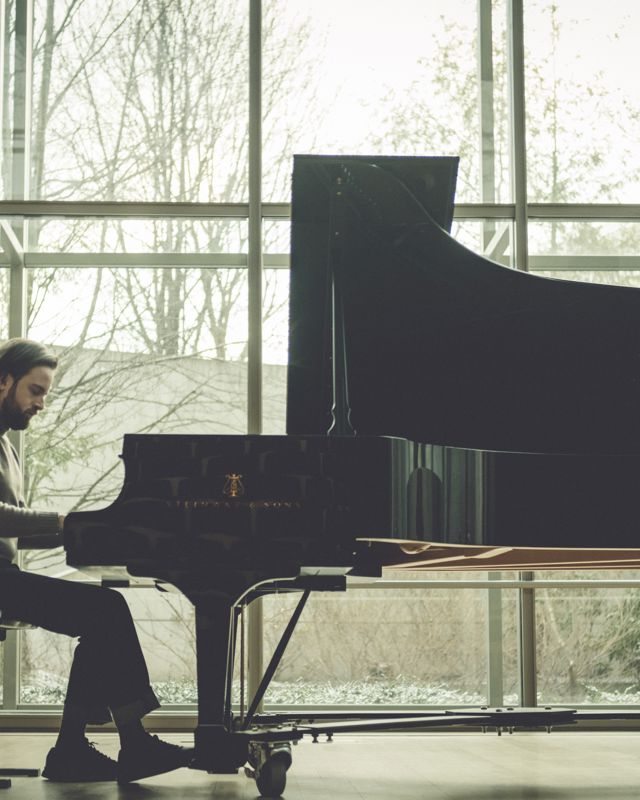Trifonov &
Szeps-Znaider at
the Oslo Opera House
 Daniel Trifonov / Photo: Dario Acosta
Daniel Trifonov / Photo: Dario Acosta
A meeting of musical minds
World-renowned musicians Nikolai Szeps-Znaider and Daniil Trifonov perform together at the Oslo Opera House with an emotional and virtuosic programme of music by Clara and Robert Schumann, Webern and Beethoven.
Double brilliance on the piano and violin
The acclaimed violinist Nikolaj Szeps-Znaider has performed with the world's leading orchestras and has in recent years also enjoyed great success as a conductor. Equally celebrated is the pianist Daniil Trifonov, who at just 35 has enjoyed a meteoric rise to fame. The Times described him succinctly as ‘today's leading classical virtuoso’.
Together, they deliver a programme full of romantic fervour and modernist precision.
Schumann's final works
The evening begins with two works closely linked in music history. Clara Schumann composed Three Romances in close collaboration with violinist Joseph Joachim in 1853, to whom the work is also dedicated. Lyrical and full of passion, it remains one of her most beloved chamber compositions.
That same year, her husband’s Violin Sonata No. 2 premiered with Clara Schumann and Joseph Joachim performing. The work was written in Robert Schumann's last active years as a composer, and definitely his most turbulent. The year after the premiere, Schumann attempted suicide and was institutionalized from 1854 until his death in 1856. The sonata mirrors a troubled soul – full of fragments, anxiety, and conflicting emotions, dancing on the edge between light and darkness.
Concentrated and challenging works by Webern and Beethoven
There’s a radical shift in expression with Anton Webern's highly concentrated Four Pieces for Violin and Piano from 1910. Theodor Adorno apparently once claimed that the pieces’ continuation could just be a single sigh – so brief and distilled are these miniatures. Each note is chosen with care and charged with meaning, each silence as important as the sound itself.
The evening concludes with Beethoven's Violin Sonata no. 9 in A major (1803), a virtuosic masterpiece known for its explosive energy and technical challenges. Originally dedicated to George Bridgetower, it was later rededicated to violinist Rodolphe Kreutzer, hence the better-known title the Kreutzer Sonata.
Kreutzer reportedly called the piece ‘outrageously unintelligible’ and refused to perform it. Fortunately, plenty of others – both violinists and listeners – have wholeheartedly embraced the sonata: it has become an audience favourite and a major source of inspiration for artists across generations.
Programme
Clara Schumann: Three Romances for piano and violin, op. 22
Robert Schumann: Sonata no. 2, op. 121
Anton Webern: Four pieces for violin and piano, op. 7
Ludwig van Beethoven: Violin Sonata No. 9 in A Major (Kreutzer Sonata)
-
Sunday 10. May18:00 / Main Stage
Intermission refreshments
 Photo: Fursetgruppen
Photo: Fursetgruppen